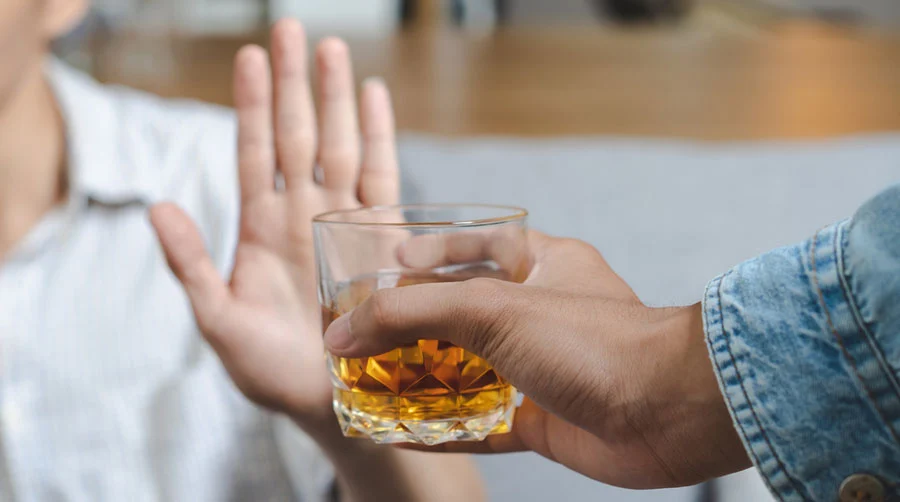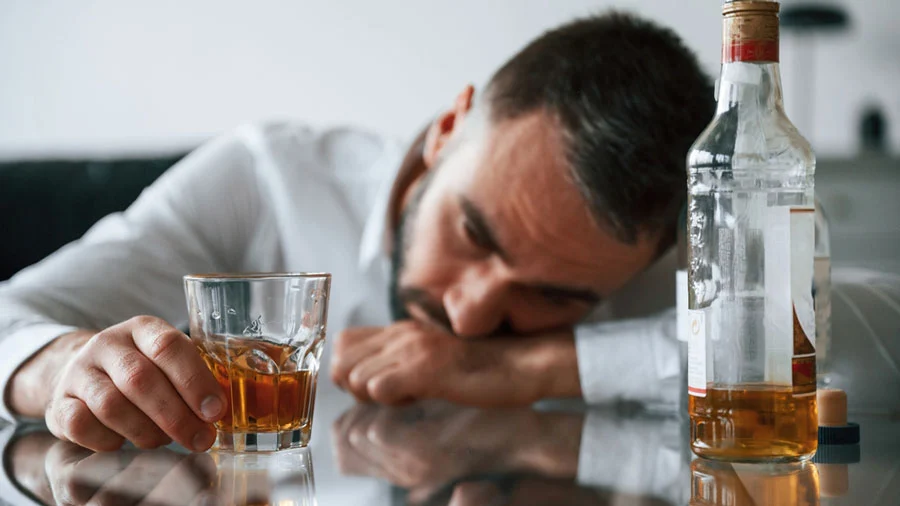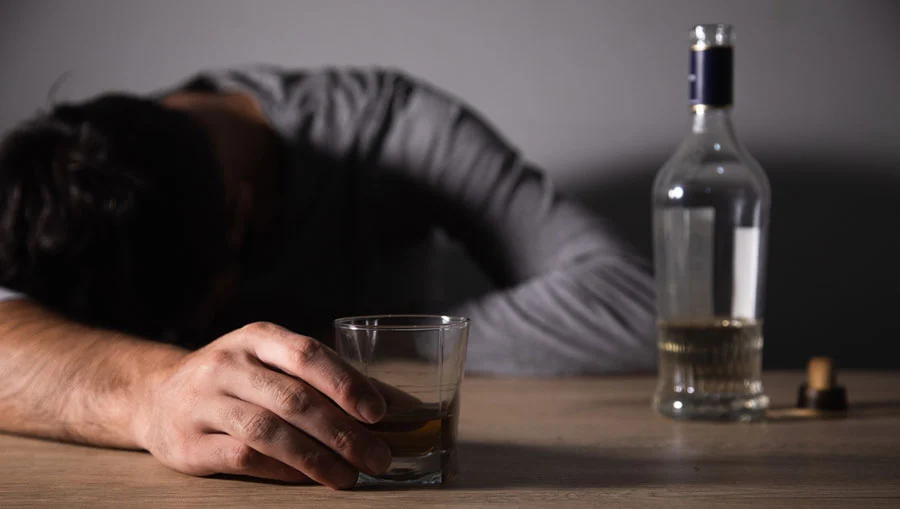A Personal Account of Relapse and Regaining Sobriety
When you are a former addict, a relapse can be one of your biggest worries. Having suffered from alcohol addiction for most of my life, I suffered from several relapses before I ultimately quit drinking for good. If it weren’t for the support and encouragement of South Shores Detox and Recovery, I would still abuse alcohol today.
They taught a clear answer to the question: Can recovering alcoholics ever drink again?
To put it simply, every former addict is at risk for relapse. It doesn’t matter how long you’ve been sober. I’ve met people in recovery who were sober for decades and one slip-up caused them to go back to drinking alcohol.
Quitting alcohol following a relapse is tricky. Your confidence takes quite a hit when you start drinking again after a period of sobriety. A lot of alcoholics try dozens of times to get sober, and it never works. That doesn’t mean it’s impossible. The best thing to know for any addict is that you have plenty of options at your disposal.
And remember that our support is available at South Shores at any time if relapse has been an issue for you or a loved one.
Dealing With Alcohol Addiction and Avoiding Temptation
Temptation is one of the biggest concerns when it comes to getting sober. There are times when you will be tested. When I decided to seek alcohol treatment for the first time, I had an unrealistic idea of sobriety. I thought my life would suddenly become easier. I thought I wouldn’t think about drinking alcohol again.
When I still was dealing with the same issues and urges after becoming sober, it was discouraging. I assumed I would only have to go through substance abuse treatment once. It took several more attempts before I finally kicked my drinking through South Shores. If you are worried about a potential relapse, there are plenty of options at your disposal. Keep reading to learn more.
When Alcohol Abuse Takes Over
Alcohol addiction creeps up on you. When I started drinking alcohol, it was all fun and games. It went from moderate drinking with friends to getting drunk alone and making poor decisions. As I slipped further into alcohol use disorder, I still believed that I had my drinking under control. If you have an addictive personality, controlled drinking patterns don’t exist.
All alcoholics believe they’ve got their drinking under control. We all make as many excuses as we possibly can. Before you know it, you are drinking earlier and earlier in the day. When it got to the point that I needed a beer in order to get out of bed, I knew there was a potential problem.
Worsening Alcohol Consumption
The longer you slip into alcoholism, the harder it is to stop drinking. When I became a full-on alcoholic, the idea of quitting drinking was terrifying. I convinced myself that my drinking was a part of who I was. Life was so boring without alcohol. How could I ever enjoy myself again? It’s hard to believe the mind games that substance abuse plays on addicts, but it’s a common occurrence among all of us.
When drinking became the most important part of my day, things went south very quickly. I couldn’t hold down a job. The bills piled up. I refused help from loved ones. The idea of alcohol recovery was so foreign that I didn’t even entertain the possibility.
Unfortunately, many addicts never seek treatment. I finally reached a point where I was willing to give it a try. It often takes an addict to hit their bottom before they give treatment a chance. When you give sobriety a shot, it could be the difference between life and death. No matter how bad your addiction is, it doesn’t have to have an unhappy ending.
How To Get An Alcoholic to Stop Drinking
The first time I got sober, I lasted about two weeks before I started drinking again. A year later, I decided to give sobriety another chance. This time I lasted about a month before slipping back into my alcohol addiction. Each time I relapsed, I tried to convince myself that I could engage in moderate drinking. Within a few days, my moderate drinking led right back to binge drinking and losing all my self-control.
Controlled drinking is only for non-addicts. There are plenty of people out there who can have one or two drinks and cut themselves off. Alcoholics can’t do it. I know now that even though I wish I could drink occasionally, it just isn’t in my makeup. If I have one drink, I’m going to end up losing control and drinking myself into oblivion.
Withdrawal Symptoms Associated With Alcohol Abuse
Alcohol is one of the few substances where the withdrawal symptoms can be fatal. Alcohol has a depressant effect, which can lead to mood swings and anxiety. In the past when I tried to stop drinking, the first day or two was agony, both physically and emotionally. Headache, nausea, insomnia, and excessive sweating are all common within the first couple of days after you quit drinking.
If you are a chronic alcoholic, you can suffer from delusional thinking and hallucinations within two to three days after you stop drinking. Delirium tremens is another common withdrawal symptom of severe alcoholism. Delirium tremens result in more severe delusions and hallucinations, and can often be fatal.
Luckily for me, I never reached this point. Despite the discomfort of my withdrawal symptoms, I was lucky to avoid completely losing my mind. Even with all of this knowledge available, many alcoholics continue to drink alcohol with no desire to quit. That’s how intense of an addiction alcoholism is.
Quit Drinking And Avoid Relapse
The last time I had a drink was three years ago. After only being able to quit for several weeks or months at a time, this is a huge accomplishment for me. It was only possible because I was willing to do the work. Sobriety isn’t easy. It requires a lot of self-reflection and individual therapy. For the relatives of alcoholics, family therapy is often a good option as well.
Once I began to work on my mental health, I started to see a change in my attitude. I stopped making excuses and blaming outside influences for my addiction. For any recovering alcoholic, self-awareness is a big part of maintaining sobriety. If you don’t hold yourself accountable, who else will?
Support groups can only do so much. As helpful as support groups can be, ultimately it’s in those solitary moments when things can go south. You have to be able to prevent yourself from making the poor decisions that you used to. Sometimes it doesn’t always work. Recovered alcoholics fall off the wagon and start drinking again all the time. It’s unfortunate, but it doesn’t mean you can’t regain your sobriety.
Quitting Alcohol Is Easier Said Than Done
As an addict and alcoholic who has dealt with relapse, the most important thing I’ve learned is not to give up hope. No matter how a relapse occurs, or for how long, there is always a supportive group of people willing to help. As personal an issue as alcohol abuse is, it takes a lot of peer support in order to pick up the pieces. You have to do a lot of the work yourself, but having help along the way is key to achieving sobriety.
Despite being aware of all the negative consequences associated with my drinking, I still have to fight the urge to drink. The best thing a recovering alcoholic can do is to form healthy behaviors, avoid certain foods with alcohol and develop a routine. I go to the gym four or five days a week and engage in my hobbies as often as possible. If you have no hobbies or healthy outlets, you are at a higher risk of relapse.
Can A Recovered Alcoholic Drink In Moderation?
Can alcoholics drink socially or develop control over their drinking? The short answer is no. In my experience, an addict will slip further and further into substance abuse with no concern for their own well-being. An addict’s brain is geared towards getting more and more. As you develop a tolerance, it takes more and more to feel the desired effects.
Of all the recovering addicts I’ve come across, I’ve never met one who was able to go back to drinking socially or in moderation. It just doesn’t happen. All addicts have an unhealthy relationship with whatever their drug of choice is. When I finally realized that I could never drink again without ruining my life, it was a defining moment in my life.
I knew I never wanted to experience withdrawal symptoms again, so for me that answer to: can this alcoholic ever drink again was an emphatic – no!
Achieving Long Term Recovery with Support at ‘the Shores
As I’ve already mentioned, recovery requires work and patience. Though it might seem overwhelming or scary, there is always a rewarding aspect of it if you do it the right way. There is always a real risk of relapse among recovering addicts, but if you know how to identify triggers and keep yourself in check, long-term recovery is possible for anybody.
If you or someone you love is suffering from a drinking problem, there is always hope for recovery. Treatment centers such as South Shores Detox and Recovery work wonders every day and can help lead addicts to a positive and productive life.
Making that hard call was the best decision I ever made, and it can be for you as well if you want solid support for sobriety!




